Adapted from the article: Fuente en español
Guillermo Salas, a Physicist, is one of the few people on Earth who has studied in-depth the Venezuelan electronic voting system. In his new book, “The Power of Mathematics, the electronic voting system of Venezuela that has spread around the world” (El Poder de las Matemáticas, el Sistema de voto de Venezuela que se ha esparcido por el mundo, La Esquina del Álveo), the author uses his extensive knowledge to unravel step by step how Venezuela’s electoral system adopted a series of technologies (hardware, software and logistical infrastructure) whose suppliers had a close relationship with the Chavista government, as well as how these technologies work and allow them to influence the outcome of an election.
In an event held at the headquarters of the World Law Foundation, the presentation of the book was attended by leading professionals in the fields of mathematical sciences, organized crime, intelligence, and journalism. The lawyer and political analyst Jesús Ángel Rojo Pinilla presented and moderated the event, which included speeches by Maibort Petit, investigative journalist and expert in narcotics trafficking and organized crime; the doctor in mathematics and intelligence expert José Humberto García; the mathematician, journalist and director of Venezuelan newspaper El Nacional Miguel Henrique Otero, and the military analyst and expert in National Security José Gustavo Arocha, in addition to the presentation by the author himself.
The author explained in detail all the indications that led him and his team of researchers to think that there had been fraud in the Venezuelan general elections of 2004. By exposing the theory of degrees of separation, Salas showed how the government of Hugo Chávez maintained a very close relationship with the companies in charge of supplying the machines and software used. In addition, the author explained different mathematic and statistic laws that distinguished between organic and artificially created numbers and proved his assertions of fraud.
Furthermore, Salas focused on the company in charge of manufacturing the machines, Smartmatic. This company, despite having no prior activities and having its headquarters registered at a 1-bedroom flat address in Boca Raton, Florida, managed to acquire Sequoia Voting Systems, one of the top three voting machine companies in the U.S., with a total of 125 million U.S. votes under its control for the 2020 elections. In the author’s words, these indications already show that this «is a subject worthy of study». He also mentioned how the Bolivian elections had been manipulated.
After the author’s detailed presentation, supported by several articles on the subject published in the journal Statistical Science, it was the turn of Maibort Petit who focused her speech on the dominance of the narrative and the imposition of narratives on media, something that the journalist considers fundamental for authoritarian leaders to be able to gain access to power and to remain in power. According to Petit, this tends to be a two-pronged strategy: a specific narrative imposed using all possible means (bribes, extortion, harassment, etc.) and, secondly, massively discrediting any voice that disagrees with this narrative, especially those that provide evidence or weighty arguments.
Regarding the role of the media, the mathematician and director of the Venezuelan newspaper El Nacional, Miguel Henrique Otero, recalled how his newspaper was the only referencing the studies on electoral fraud published in Statistical Science, and how, in spite of this, the hegemonic narrative that the government had managed to impose prevented any kind of debate on the matter.
Doctor in mathematics and intelligence expert José Humberto García focused his intervention on explaining complex adaptive systems (CAS) to illustrate the functioning of the political and governmental machinery of Chavista Venezuela. These rapidly evolving systems, with chaotic periods foreseen and determined in advance, are tremendously adaptable to adversity, and use these periods of «controlled chaos» to reconstitute and restructure themselves without suffering serious damage. In this way, García identified the Chavista regime as one of these systems.
Finally, National Security expert José Gustavo Arocha made use of Dr. García’s CAS thesis to explain the functioning of the Venezuelan Armed Forces. Graphically illustrating the Venezuelan military organization chart, Arocha showed the decentralized nature of the organization, something that is striking to anyone familiar with the strict chains of command that usually serve as the backbone of the armed forces in the vast majority of modern States. Thus, according to Arocha, the army would be another example of CAS, fully autonomous and equipped with the capacity to respond to potential threats.
The event ended with a warning from the speakers: these frauds are not exclusively typical of countries perceived as «underdeveloped». If the Chavista modus operandi has been able to reach the United States, a country generally considered to be home to one of the most solid democracies on the planet, it can reach anywhere.



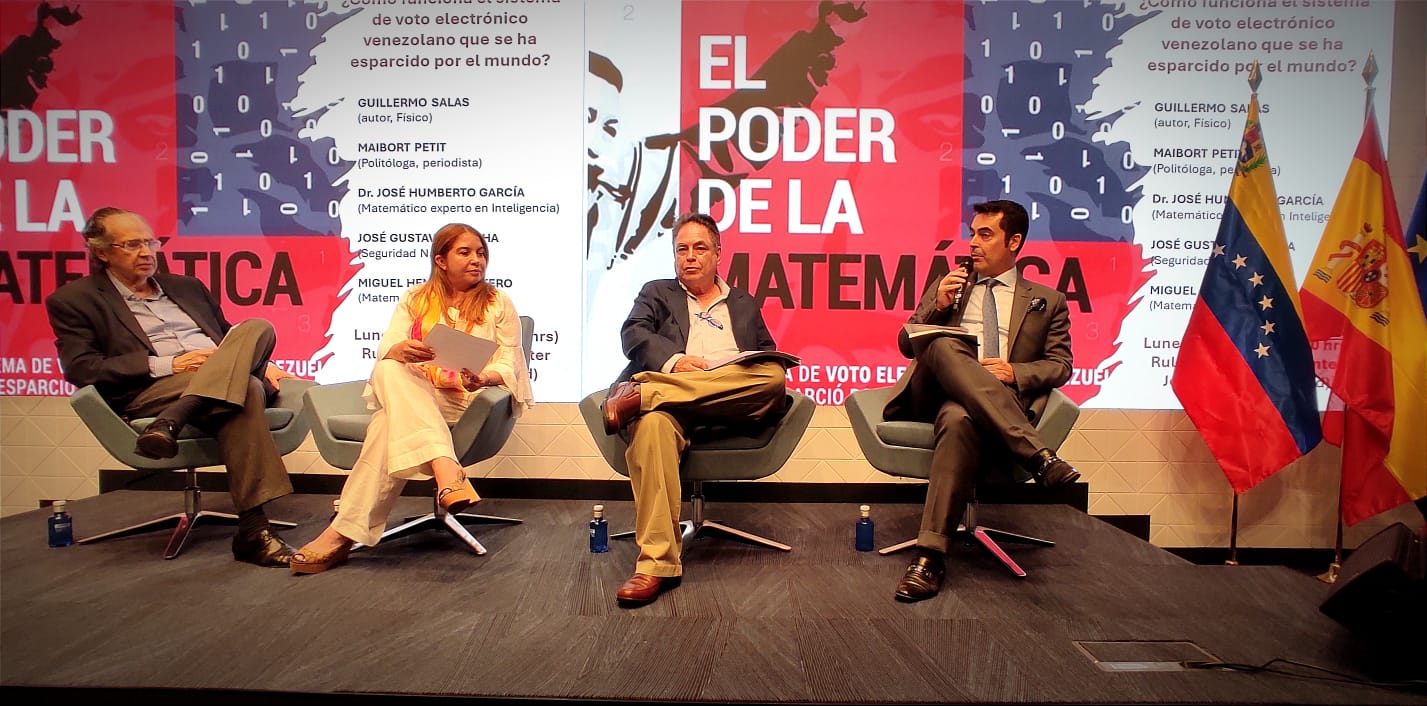
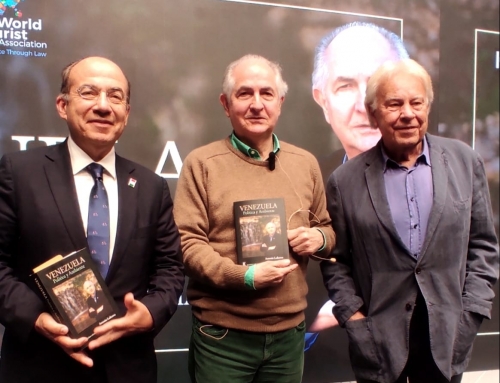
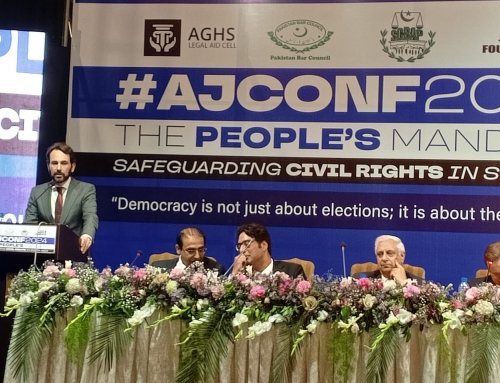
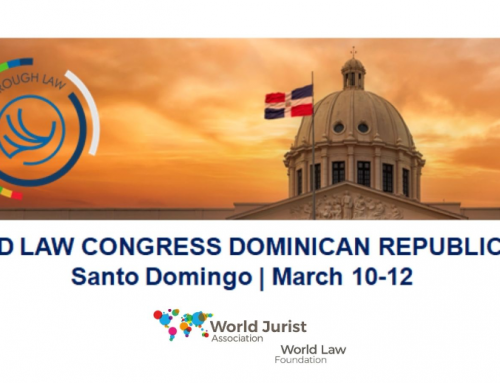
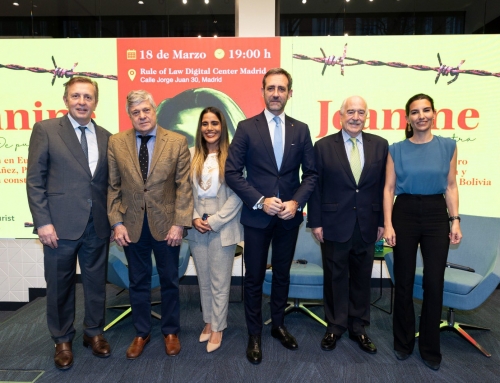
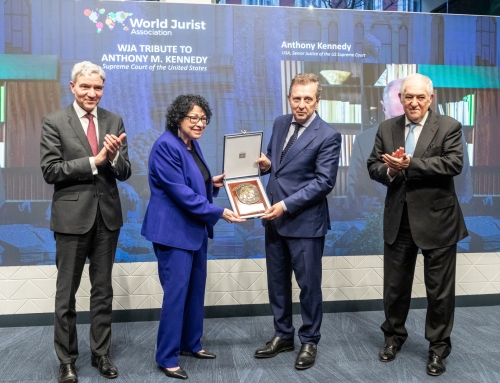
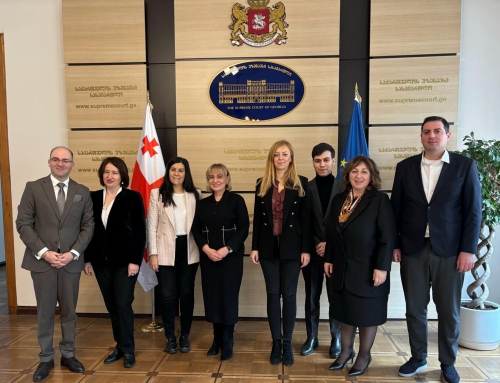


Leave A Comment